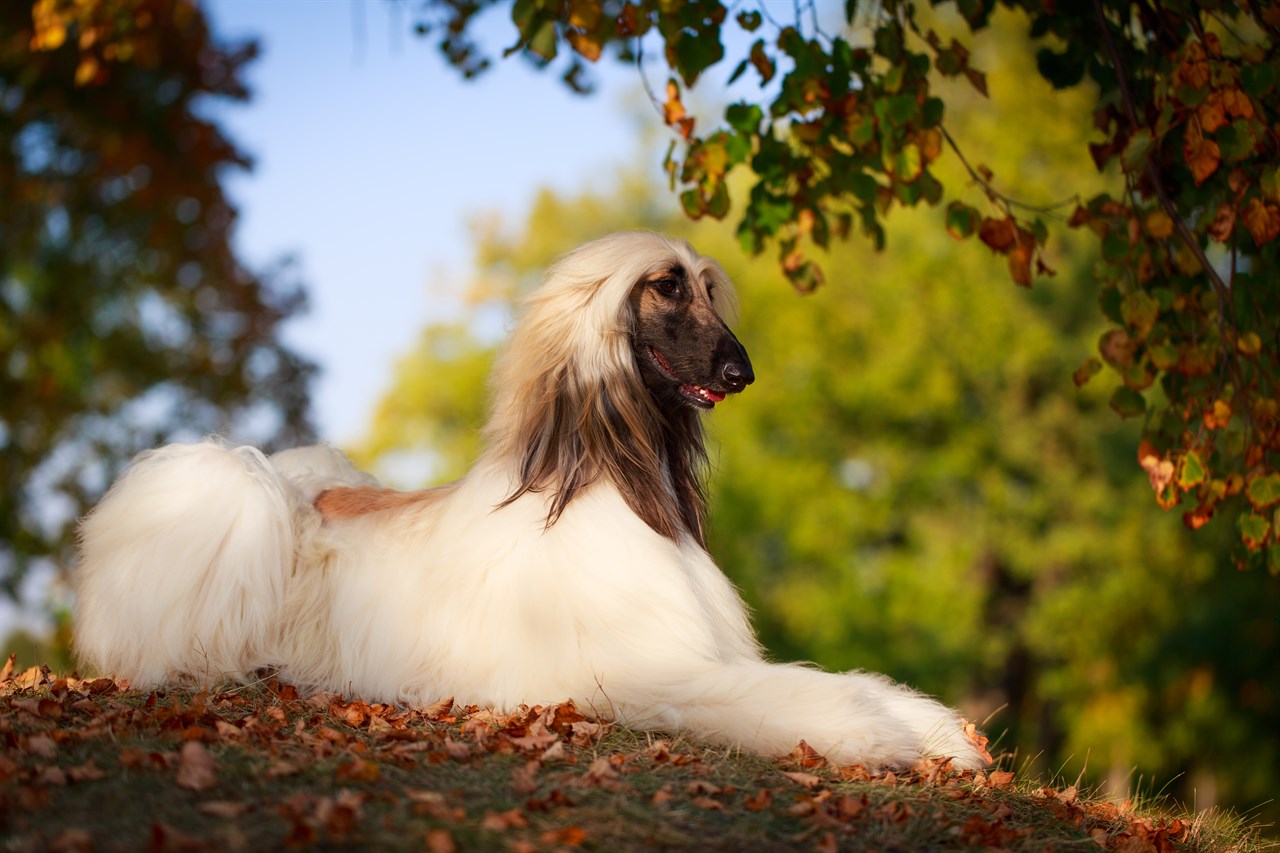Feeding Habits and Food Requirements of the Afghan Hound

The Afghan Hound, with its lean and athletic build, requires a carefully balanced diet to maintain its energy levels, coat health, and overall well-being. As a breed with unique nutritional needs, Afghan Hound owners should pay close attention to the type, quantity, and timing of their dog’s meals.
Feeding Habits
Afghan Hounds can sometimes be picky eaters, reflecting their independent and somewhat aloof nature. They may take their time eating or show preferences for certain types of food. It’s important to introduce variety into their diet while ensuring the meals remain nutritionally complete.
Unlike some other breeds, Afghan Hounds are unlikely to overeat if free-fed, but portion control is still essential to prevent obesity or digestive issues. Feeding them on a schedule is recommended to establish a routine and ensure they’re consuming the right amount of food each day.
Food Requirements
Afghan Hounds require high-quality dog food that provides a balance of protein, fats, carbohydrates, vitamins, and minerals. Given their sighthound heritage, they benefit from a diet that supports lean muscle mass and energy levels while being easy to digest.
- Protein: Afghan Hounds thrive on protein-rich diets to maintain their muscles and energy. Look for foods with real meat, such as chicken, beef, lamb, or fish, as the primary ingredient.
- Healthy Fats: Omega-3 and Omega-6 fatty acids are crucial for maintaining the Afghan Hound’s silky coat and healthy skin. Fish oil or flaxseed is an excellent source of these fats.
- Carbohydrates: Complex carbohydrates, such as sweet potatoes or brown rice, provide long-lasting energy.
- Calcium and Phosphorus: These nutrients are vital for strong bones and teeth, especially during puppyhood.
- Fibre: A diet with sufficient fibre supports healthy digestion, which is important for Afghan Hounds prone to stomach sensitivities.
Meal Portions
Portion sizes depend on the Afghan Hound’s age, weight, activity level, and metabolism. On average:
- Puppies: Afghan Hound puppies should be fed 3–4 small meals a day to support their growth.
- Adults: Adult Afghan Hounds generally require 2 meals per day. For an average-sized Afghan Hound, this could be 2–3 cups of high-quality dry dog food daily, divided between meals.
- Seniors: Older Afghan Hounds may need smaller portions and lower-calorie food to prevent weight gain while maintaining their nutritional needs.
Feeding Tips
- Avoid Overfeeding: Afghan Hounds have a slim physique and should not carry excess weight, as this can strain their joints and affect their overall health.
- Fresh Water: Always provide clean, fresh water to keep your Afghan Hound hydrated, especially after exercise.
- Gastric Dilatation-Volvulus (Bloat): Afghan Hounds, like many deep-chested breeds, are susceptible to bloat. To reduce the risk, avoid feeding them immediately before or after exercise and divide their meals into smaller portions.
- Human Foods: Avoid giving your Afghan Hound foods that are toxic to dogs, such as chocolate, onions, grapes, or anything high in sugar or salt.
Can Afghan Hounds Eat Raw Food?
Yes, Afghan Hounds can thrive on a raw diet, often referred to as BARF (Biologically Appropriate Raw Food), which includes raw meat, bones, and vegetables. However, this diet requires careful preparation and guidance from a veterinarian or canine nutritionist to ensure all nutritional needs are met.
Do Afghan Hounds Need Special Food?
Afghan Hounds do not require breed-specific food, but they do benefit from diets tailored to active, medium-to-large dogs with sensitive stomachs or high grooming needs. Foods with added nutrients for joint health (like glucosamine) and coat health (like omega fatty acids) are particularly beneficial.
Treats and Snacks
Healthy treats like carrot sticks, apple slices (without seeds), or commercial dog treats made with natural ingredients can be given in moderation. Treats should make up no more than 10% of their daily caloric intake to maintain a balanced diet.
By providing the right balance of nutrients and portion sizes, Afghan Hound owners can ensure their dogs remain healthy, active, and as elegant as ever.
Afghan Hound puppies for sale
- Find Afghan Hound puppies for sale in ACT
- Find Afghan Hound puppies for sale in NSW
- Find Afghan Hound puppies for sale in NT
- Find Afghan Hound puppies for sale in QLD
- Find Afghan Hound puppies for sale in SA
- Find Afghan Hound puppies for sale in TAS
- Find Afghan Hound puppies for sale in VIC
- Find Afghan Hound puppies for sale in WA